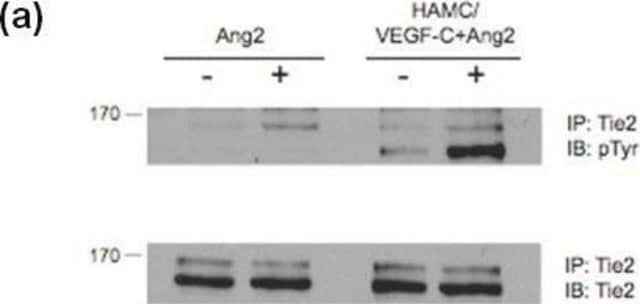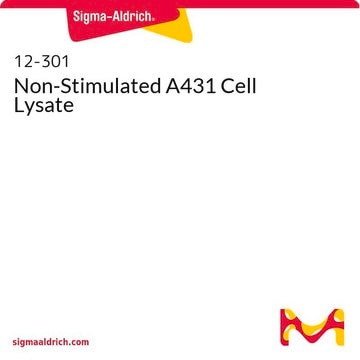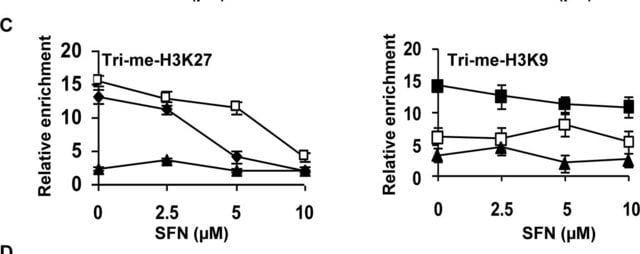16-105
Anti-Phosphotyrosine Antibody, clone 4G10®, HRP conjugate
clone 4G10®, Upstate®, from mouse
Synonyme(s) :
Anti-phosphotyrosine antibody
About This Item
Produits recommandés
Source biologique
mouse
Niveau de qualité
Conjugué
peroxidase conjugate
Forme d'anticorps
purified immunoglobulin
Type de produit anticorps
primary antibodies
Clone
4G10®, monoclonal
Réactivité de l'espèce (prédite par homologie)
all
Fabricant/nom de marque
Upstate®
Technique(s)
ELISA: suitable
western blot: suitable
Isotype
IgG2bκ
Conditions d'expédition
wet ice
Modification post-traductionnelle de la cible
phosphorylation (pTyr)
Informations sur le gène
human ... PID1(55022)
Catégories apparentées
Description générale
Description
IgG2bκ mouse monoclonal antibody produced in vitro by mouse-mouse hybridoma 4G10. Purified by Protein G-Sepharose chromatography and cross-linked to horseradish peroxidase.
Spécificité
Immunogène
Application
Signaling
General Post-translation Modification
Qualité
Western Blot Analysis:
Tested at 0.5-2 μg/mL, with optimal performance at 2 μg/mL (10 μL per 10 mL blocking buffer). This lot detected tyrosine-phosphorylated proteins in RIPA lysates from EGF-treated human A431 carcinoma cells.
Description de la cible
Forme physique
Stockage et stabilité
NOTE: For optimal performance, remove HRP precipitate by centrifuging vial prior to use.
Remarque sur l'analyse
Pervanadate-treated human A431 cell extracts, EGF-treated human A431 cells.
Informations légales
Clause de non-responsabilité
Vous ne trouvez pas le bon produit ?
Essayez notre Outil de sélection de produits.
Mention d'avertissement
Warning
Mentions de danger
Conseils de prudence
Classification des risques
Aquatic Chronic 2 - Skin Sens. 1
Code de la classe de stockage
12 - Non Combustible Liquids
Classe de danger pour l'eau (WGK)
WGK 3
Point d'éclair (°F)
Not applicable
Point d'éclair (°C)
Not applicable
Certificats d'analyse (COA)
Recherchez un Certificats d'analyse (COA) en saisissant le numéro de lot du produit. Les numéros de lot figurent sur l'étiquette du produit après les mots "Lot" ou "Batch".
Déjà en possession de ce produit ?
Retrouvez la documentation relative aux produits que vous avez récemment achetés dans la Bibliothèque de documents.
Notre équipe de scientifiques dispose d'une expérience dans tous les secteurs de la recherche, notamment en sciences de la vie, science des matériaux, synthèse chimique, chromatographie, analyse et dans de nombreux autres domaines..
Contacter notre Service technique









